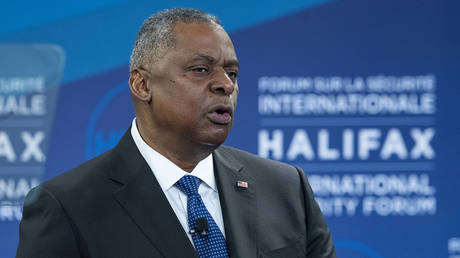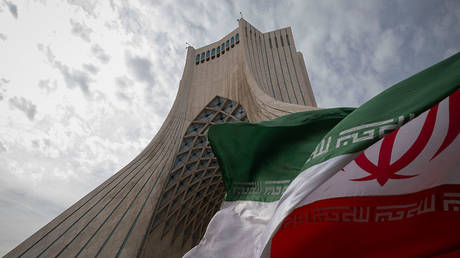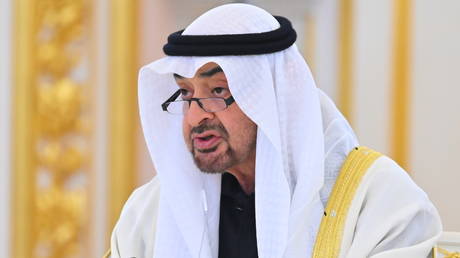
Washington’s hegemony, which it calls the “rules-based international order,” is at stake, Lloyd Austin has declared
US Secretary of Defense Lloyd Austin declared on Saturday that the outcome of the conflict in Ukraine will shape the geopolitical order of the 21st century. The West’s “stability and prosperity” is on the line, he stressed.
“The outcome of the war in Ukraine will help determine the course of global security in this young century,” Austin told an audience at the Halifax Security Forum in Canada. “And those of us in North America don’t have the option of sitting this one out.”
“Stability and prosperity on both sides of the Atlantic are at stake,” he continued, asserting that Russia’s military operation “tears at the rules-based international order that keeps us all secure.”
“Rules-based international order” is a term often used interchangeably with “liberal world order.” It encompasses the web of Western-dominated institutions – such as the World Bank, World Trade Organization, UN, EU, and NATO – that have regulated global diplomacy, trade, and conflict since the end of World War II.
Commenting on this approach before, Russian President Vladimir Putin has argued that, rather than benefiting the whole world, this order serves as an instrument of “unipolar hegemony,” used by the US to make the rest of the world its “vassals.”
“The West is insisting on a rules-based order,” he remarked in a speech in September. “Where did that come from anyway? Who has ever seen these rules? Who agreed or approved them?”
“Russia is a great thousand-year-old power, a whole civilisation, and it is not going to live by such makeshift, false rules,” he declared.
Putin has spoken on numerous occasions of building a competing “multipolar” world order, in which multiple superpowers balance and constrain each other, and disputes are settled in accordance with laws rather than Western-dictated “rules.” Earlier this week, Chinese Foreign Minister Wang Yi declared that Beijing stands ready to work with Russia “and other like-minded countries to promote the development of a multipolar world.”




